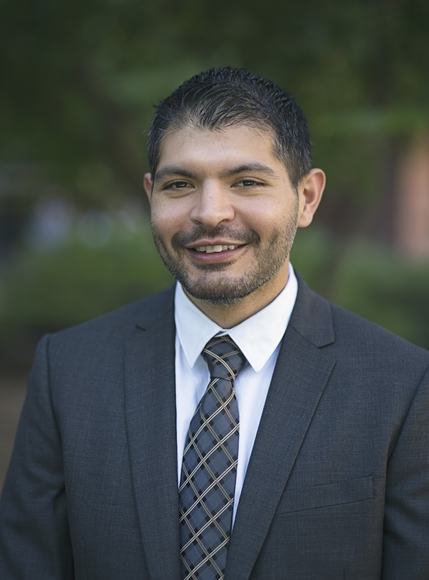WORKING PAPER: The Connection Between Inequality and Education
The following is a Q and A with Heller-Hurwicz researcher Sergio Barrera. A sixth-year PhD student, Barrera used his own experience as a first-generation college student to inform his job market paper, "Is College Worth It For Me? Beliefs, Access to Funding, and Inequality in Higher Education." Read the paper and learn about Barrera's other research.

What inspired you to research the role of college and higher education in economics?
There are a couple of reasons why I was inspired to research higher education. The first is that, it seems, as our economy is becoming more and more reliant on tech, and data, a college education is becoming more necessary for access to jobs that provide not only a good standard of living but economic opportunity.
So getting a higher education seems more important today than it was in the past. The second reason, why I was inspired to particularly study inequality in higher education, has to do with my experience growing up as a first generation college student in a predominantly Mexican American community. Almost none of my close friends and family members enrolled, let alone attained a bachelor's degree in any four year university. This is despite the fact that many of these friends and family members performed incredibly well in high school, and in all honesty they performed better than I did with respect to grades, behavior, and extracurricular activities.
Even for myself, I did not think that I was going to go to college after high school -- mainly because I didn't think I performed well enough. I also thought it would be really expensive, and I wasn't sure if I was even going to like it. Obviously I was wrong, but it took my service in the Marines as a linguist to teach me not only how to study, but also that I liked learning. The GI bill provided me with funding for school, which was also important.
So the question came up pretty organically: what were the obstacles that I had to overcome to realize that college was not only achievable, but also something that could really benefit me. I believe access to funding and human capital (i.e. one's academic preparedness) are important, but it also seemed like a possible reason why many friends and family members didn't enroll is because we didn't have many close connections with people who were experienced with college. People that could not only provide us advice for applying to schools, or assist with filling out financial aid requests, but also demonstrating through their experience and professional life that college was achievable and beneficial.
What lessons do you want people to learn from your research?
The main lesson I want people to get from my research is that when we think of underrepresentation in higher education, there are two problems. The first is that people from under-represented backgrounds receive inadequate preparation for higher education compared to other students.
The second is that there are obstacles, like lack of funding or information about the benefits of college, that prevent even well-prepared students from enrolling and completing college. For the second problem my research says we can begin to close gaps by increasing our efforts to reach out to these students and providing them financial support. But even with that, we won't completely close gaps in higher education because of the inequality in academic preparedness that results from our K-12 system, or even from household/neighborhood environments.
What advice do you have for people who are first generation students or young people who are considering higher education?
My main piece of advice would be to do your research, and it doesn't hurt to try. Specifically, if you want to go to college, then don't be afraid to apply for schools that might seem out of reach, or for scholarships and funding opportunities that seem competitive. The worst answer you can get is no, the best is yes and good opportunities. I'd also spend some time researching whether colleges will waive application fees for first generation college students, so that you don't have to worry about the cost of each application. If you are on the fence, then I'd say think really hard about what your options are outside of college and what the opportunities and costs are for college. Do your research, there might be good opportunities outside of college, but college might not be as risky as you think. In my experience, being the first to go to college in your family can be difficult, especially in regards to leaving your community and comfort zone. But even this could be remedied to a certain extent by getting involved in extracurricular activities and communities made up of similar students as yourself. So this is also something to research when considering higher education.


